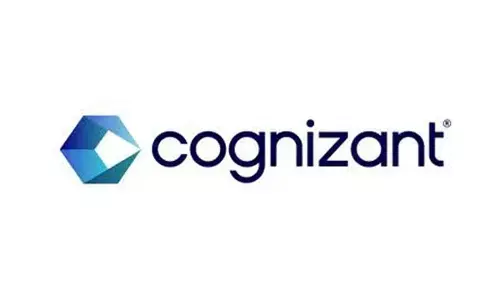Securing Mobile Apps in the Digital Age: The Role of RASP Technology

Protectt.ai – Revolutionizing mobile app security for corporates to ensure user trust, data safety and compliance.
In this digital age, mobile apps have evolved into essential tools worldwide, offering unparalleled convenience, seamless connectivity, and customer services with a click. However, this increasing reliance on mobile apps raises significant concerns, particularly data security. With the rise in cyber threats, frauds and data breaches, users are becoming more cautious about the information they share and entrust to mobile applications. As a result, it becomes crucial for developers and businesses to prioritize utmost security to build and maintain user trust.
Protectt.ai, a Mobile Threat Defense (MTD) cyber-security organization offering the next generation Mobile App, Device & Transaction security solutions driven by deep tech to explore an opportunity for Artificial Intelligence Appreciation Day 2023.
Manish Mimani, Founder & CEO, Protectt.ai
According to recent data, the number of mobile app users globally has surpassed 4 billion in 2022, with an average user spending around 4.2 hours daily on mobile apps. Such staggering usage underscores the significance of addressing data leakage/theft-related challenges in this domain. In 2022, there were over 200 million mobile app malware infections worldwide.
Manish Mimani says it is, therefore, essential for mobile app developers /corporates to take data security seriously. By implementing appropriate security measures, they can help to protect user data and prevent data breaches. Protectt.ai employs a combination of cutting-edge algorithms, data analysis, and behavioural analytics to identify and respond to potential security risks in real time. With its primary focus on protecting digital assets and mitigating cyber threats across industries, Protectt.ai employs a combination of cutting-edge algorithms, data analysis, and behavioural analytics to identify and respond to potential security risks in real time.
Understanding Data Security Challenges in Mobile Apps:
a) Malware & Phishing Attacks: Mobile apps are susceptible to malware, and phishing attacks, particularly those in critical sectors like finance, healthcare, and e-commerce, are key targets. A breach in these apps can have severe consequences, impacting users' financial well-being and personal safety. Alongside this, fraudsters often use social engineering techniques to trick users into revealing their credentials or downloading malicious apps. To combat this threat, developers must adopt stringent security protocols, regularly update their apps, and educate users about potential risks and safety practices.
b) Data Leakage: Mobile apps often handle sensitive user data, such as personal information, financial details, and location data. Inadequate security measures can lead to data leakage, making users vulnerable to identity theft, fraud, and other cybercrimes.
c) App Tampering: Cybercriminals can tamper with mobile app code to introduce vulnerabilities, inject malicious code, or reverse-engineer the app to understand its security weaknesses, putting user data at risk.
d) Frauds: Mobile apps are increasingly being targeted by fraudsters who exploit vulnerabilities to perform fraudulent activities, such as fake transactions, unauthorized access, and account takeovers.
e) Lack of Consumer Awareness: Many users are unaware of the potential security risks associated with mobile devices. This lack of awareness can lead to poor security hygiene, such as downloading apps from untrusted sources or granting excessive permissions to Apps, which in turn may impact other Apps on the device
2. The Solution: Runtime Application Self Protection (RASP) for Sensitive Mobile Apps
RASP is a proactive security technology designed to protect mobile apps from a wide range of threats, particularly those that can occur at runtime. Unlike traditional security measures that focus on the network or device level, RASP integrates directly into the app's runtime environment, actively monitoring its behaviour and defending against attacks.
Key features
In-App Runtime Security: Offers innovative protection with comprehensive features to identify and respond to Mobile App threats on Runtime.
Configurable Security Platform: End-to-end mobile app security, fraud control, regulatory compliance, and a live threat dashboard for proactive decision-making.
Comprehensive Layered Security Controls: RASP enables layered security in the form of Device, Network & Application threats that works in combination to provide comprehensive Detection & Response to threats.
RBI Regulatory Compliance: Compliance with the RBI Digital Payment Security Control Guidelines for mobile banking apps, which includes advanced security measures like device binding, unsecured Wi-Fi security checks, anti-screen sharing and mirroring, anti-malware, MiTM prevention, app tampering and reverse engineering prevention, and robust data protection.
Quick Go to-Market: Low Code integration, empowering organizations to accelerate the rollout of their mobile applications.
Continuous Protection: In a constantly evolving threat landscape SaaS (Security as a Service) model, ensures continuous security upgrades and patches to keep mobile apps updated.
Cost Effective: Pay-as-you-go model eliminates licensing costs thus considerably reducing the Total Cost of Ownership (TCO) for organizations.
As the mobile app landscape evolves, integrating RASP technology becomes indispensable in safeguarding user data and reinforcing the commitment to data privacy and security. Protectt.ai, with its cutting-edge RASP solutions, is at the forefront of this endeavour, empowering developers and businesses to create secure, trustworthy, and security-compliant mobile apps for their users.











